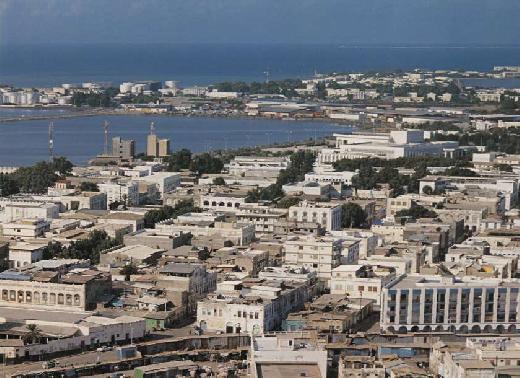Endless Possibilities: Foreign Aid and Credit Access in Djibouti

Credit access in Djibouti is something that activists in the United States have been working to improve for several years. Foreign aid in the form of economic assistance not only boosts the economic health of Djibouti and other foreign markets, but it also provides people with the means to participate in the global economy as well.
Positive Effects of Improved Credit Access
Credit access is a complicated issue that effects several factors including personal wellbeing, access to governmental aid and availability of health resources. Foreign assistance to improve credit access can help countries combat environmental as well as economic issues.
According to the International Monetary Fund (IMF) report, in 2012 a drought in Djibouti resulted in the government requesting access to credit assistance for an environmental crisis:
“The drought in Djibouti has worsened water scarcity, reduced agricultural production and cattle stock, and accelerated refugee inflows. The authorities have requested an augmentation of access under the ECF of 60 percent of quota. As a result of exogenous shocks, financing needs for 2011–12 are expected to be higher than previously projected, despite the pledges from the international community to help Djibouti address the impact of the drought.”
Recovering from Drought
Credit access in Djibouti provided the government with the means to help citizens combat the detrimental effects of the drought in 2012. Foreign credit assistance can also contribute to improving infrastructure and social mobility in the time of an environmental issue. In 2014, a $5.6 million agreement between the U.S. and Djibouti assisted citizens who had been affected by flooding according to a 2014 report:
“The project targets the 25,000 residents of Q7, a flood-prone area in which 70 percent of households have no sewage system. The residents of this neighborhood, the densest in Djibouti City, will benefit from increased access to basic services, urban mobility, flood management, community development activities, and on-site job opportunities.”
Everyday Benefits
The effects of credit access in Djibouti is not limited to government resources. According to the United Nations Development Programme, the establishment of credit unions have affected the lives of citizens who provide for themselves every day. According to the UNDP, credit union members have risen from 1,600 to 3,041 in just six months.
According to Nima Moussa Warfa, the credit union gave her the opportunity to change her living situation. “I used to live over there but as I borrowed money and as my business grew, I was able to build this house,” she said.
The Global Economy
Credit access increases participation in the global economy, improves economic health as well as generates revenue. Credit access in Djibouti would allow tourism and global market participation to contribute to the success of the economy.
Participation in larger market can also improve the economic budget of Djibouti if aid gives the country the resources it needs to be successful. Overall, improved economic health through foreign aid benefits both the assisted country as well as the global economy.
One way this improvement could be achieved is through credit access in Djibouti. For economies and markets that need assistance improving market participation, credit access is a way for people to participate if they do not have the means to do so already.
IMF Loans
IMF loans is one way that foreign credit assistance is provided to countries across the world. The IMF focuses on providing countries with the financial resources it needs to address social and environmental issues, focusing on “crisis resolution.”
The organization states in its 2017 report that “This crisis resolution role is at the core of IMF lending. At the same time, the global financial crisis has highlighted the need for effective global financial safety nets to help countries cope with adverse shocks.”
Improving National and Global Fiscal Health
Foreign credit assistance is something that financial activists work to provide to countries in need across the world as it improves the health of not only the country in need, but the economic health of global markets as well.
It is a form of aid that provides governments with the means to encourage strong health institutions and businesses. In addition, it gives citizens of countries in need of assistance more autonomy over their financial lives. Activists will continue to look for ways to aid those in need, and credit assistance is an excellent place to start.
– Gabriella Evans
Photo: Wikimedia Commons
